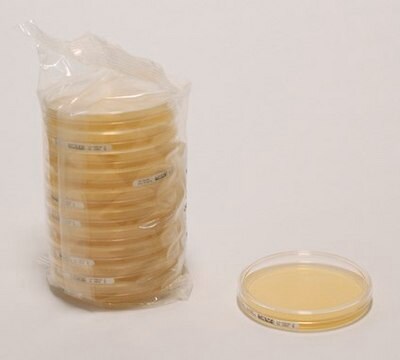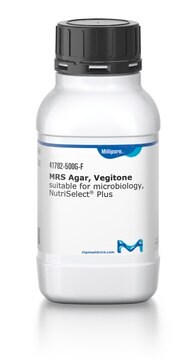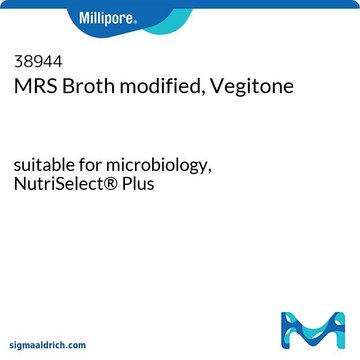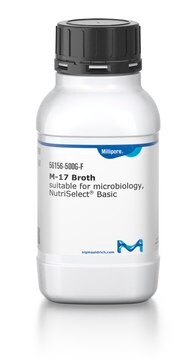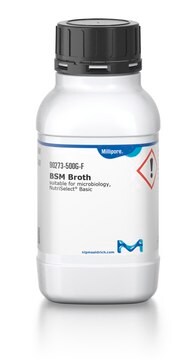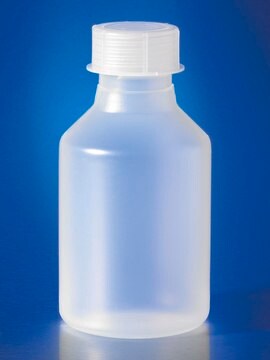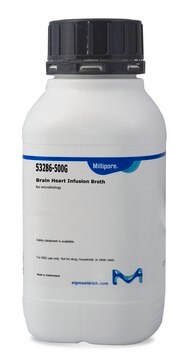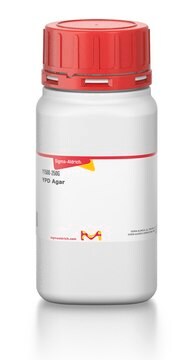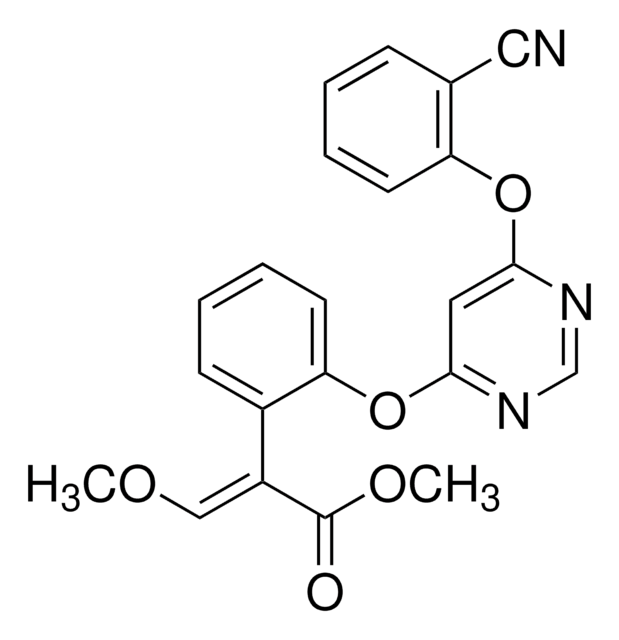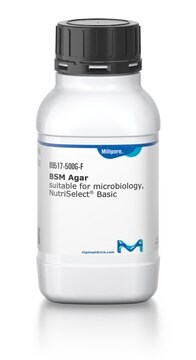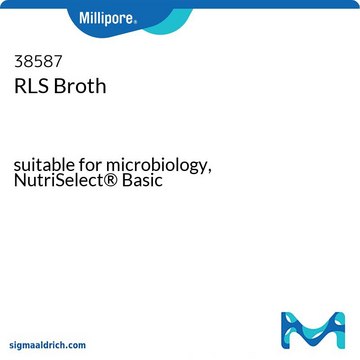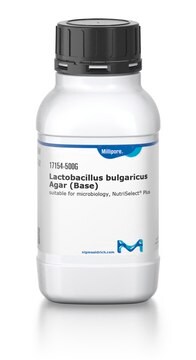69966
MRS Broth
suitable for microbiology, NutriSelect® Basic
Sinónimos:
Lactobacillus Broth acc. to De Man, Rogosa and Sharpe
About This Item
Productos recomendados
sterility
non-sterile
Quality Level
form
powder
shelf life
limited shelf life, expiry date on the label
composition
dipotassium hydrogen phosphate, 2 g/L
glucose, 20 g/L
magnesium sulfate monohydrate, 0.2 g/L
manganous sulfate tetrahydrate, 0.05 g/L
meat extract, 8 g/L
peptone, 10 g/L
sodium acetate, 5 g/L
triammonium citrate, 2 g/L
yeast extract, 4 g/L
packaging
pkg of 500 g
manufacturer/tradename
NutriSelect® Basic
technique(s)
microbiological culture: suitable
pH
6.2±0.2
application(s)
agriculture
bioburden testing
environmental
food and beverages
microbiology
suitability
selective by low pH for Bifidobacterium spp.
selective by low pH for Lactobacillus spp.
General description
Application
Preparation Note
Footnote
The designations basic, plus, or prime are added to indicate the quality control level, from basic quality control to standard QC plus to prime for full regulatory compliance.
Legal Information
Storage Class
11 - Combustible Solids
wgk_germany
WGK 3
flash_point_f
Not applicable
flash_point_c
Not applicable
ppe
Eyeshields, Gloves, type N95 (US)
Elija entre una de las versiones más recientes:
¿Ya tiene este producto?
Encuentre la documentación para los productos que ha comprado recientemente en la Biblioteca de documentos.
Los clientes también vieron
Artículos
Molecular biology-based methods, like PCR, can be used for lactobacilli detection.
Traditional methods are based morphology, staining methods, enzyme reactions (metabolism) and diverse media.
Today, diverse studies report the benefits of probiotics, such as inhibitory effects on pathogens, aid in the management or prevention of chronic intestinal inflammatory diseases or atopic syndromes, and support to the immune system. Potential beneficial applications abound, researchers continue to evaluate the effictiveness and clarify the mechanisms of action of probiotics.
Nuestro equipo de científicos tiene experiencia en todas las áreas de investigación: Ciencias de la vida, Ciencia de los materiales, Síntesis química, Cromatografía, Analítica y muchas otras.
Póngase en contacto con el Servicio técnico